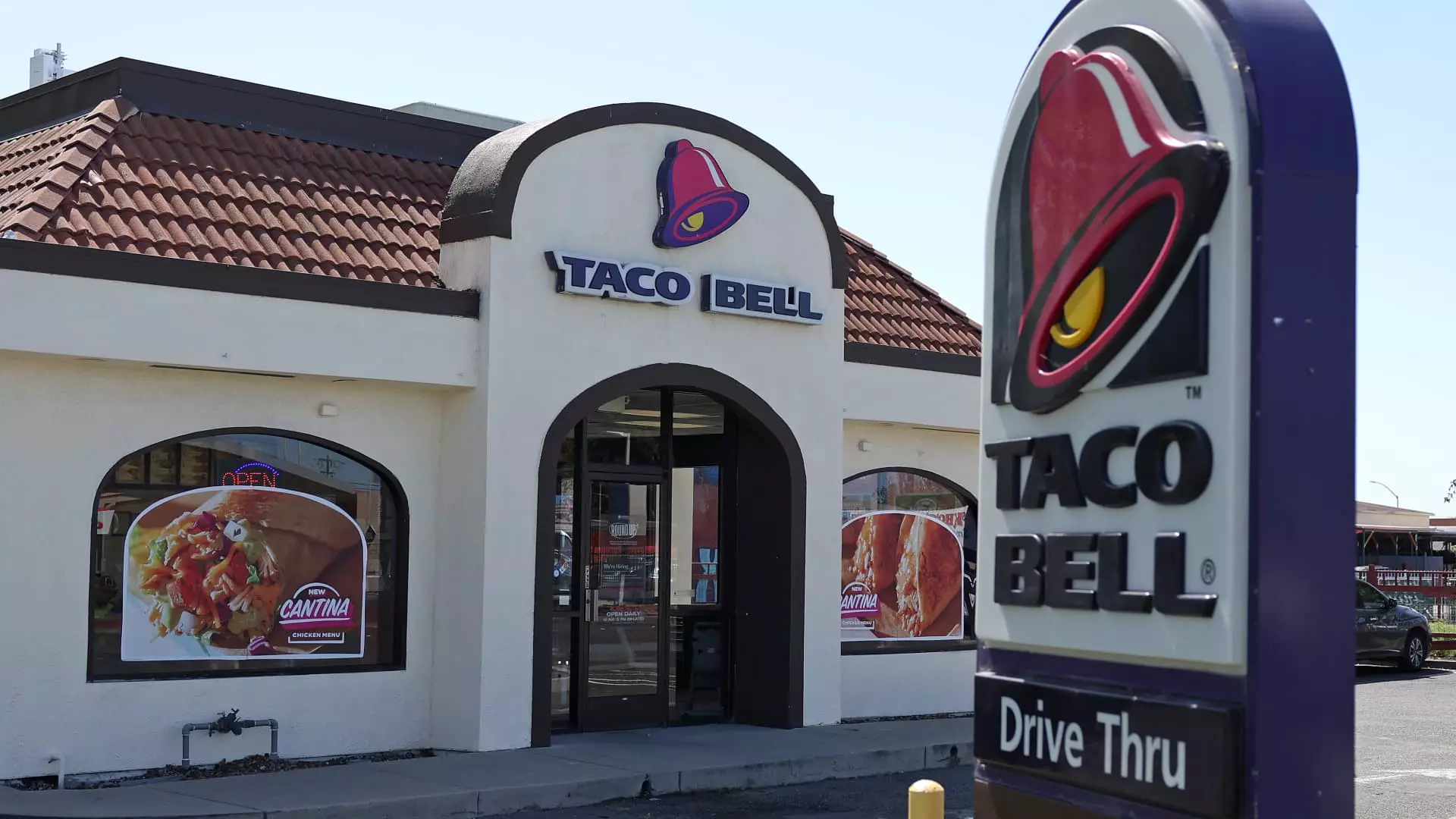The recent E. coli outbreak linked to some McDonald’s restaurants has triggered a significant ripple effect throughout the fast food industry, prompting multiple chains to act swiftly in response to health concerns. Companies like Yum Brands, the owner of Taco Bell, KFC, and Pizza Hut, as well as Burger King’s parent company, Restaurant Brands International, have initiated precautionary measures to mitigate the risks associated with their products. This situation not only highlights the vulnerabilities within food supply chains but also underscores the importance of customer safety and brand reputation in a competitive market.
Yum Brands took an immediate step by removing fresh onions from select restaurants as a precautionary measure. The company’s spokesperson emphasized that the choice to withdraw the onions was made out of an “abundance of caution,” suggesting a dedication to maintaining food safety. However, the lack of clarity regarding the exact number of locations impacted and the specifics of the relationship between the E. coli outbreak and their onion supply raises questions about how comprehensively these companies monitor their suppliers. Though it is commendable that Yum is acting conservatively, this ambiguity could lead customers to speculate about the extent of the threat.
On the other hand, Burger King has directly associated its decision to pull onions from approximately 5% of its U.S. restaurants with a specific supplier—the Taylor Farms facility—linked to the outbreak. Their proactive approach, which involved immediate disposal of potentially contaminated products, illustrates a commitment to customer safety. By stating that employees cut and prepare onions in-house, Burger King seeks to reassure its customer base that they maintain strict control over food handling processes. Still, the question remains: how often do these chains evaluate their supply chains to prevent such incidents from occurring in the future?
The involvement of health authorities in the investigation of the E. coli outbreak is crucial. After an alarming number of illnesses and one reported death across ten states, the Centers for Disease Control and Prevention (CDC) has begun interviewing affected individuals to trace the source of contamination. The fact that a significant proportion of those interviewed associated their illness with consuming Quarter Pounder burgers from McDonald’s signals a pressing need for regulatory bodies to ensure that food safety protocols are consistently enforced across all food service establishments.
Moreover, the investigation’s focus on specific ingredients, such as the fresh beef patties and slivered onions, underscores how easily foodborne illness can spread within a network of suppliers. Companies, therefore, need to remain vigilant and responsive to guidance issued by health authorities—not just for compliance, but as part of a broader ethical commitment to consumer protection.
Incidents like the current E. coli outbreak pose significant risks to brand reputation. In an era where consumers are more informed and concerned about food safety, any misstep can result in lost trust and sales. The precautionary measures taken by fast food chains, whereas essential, won’t be enough if they don’t communicate transparently with their customers. For instance, detailed information about the source of ingredients, the steps taken to rectify the situation, and assurances about the safety of a restaurant’s menu must be a part of each chain’s strategy moving forward.
To rebuild and maintain consumer confidence, these companies must prioritize transparency during crises. This approach might include public statements about the quality control measures in place or even updates on supplier changes. Assuring customers that their health is a priority can mitigate backlash and foster long-term loyalty.
As the food industry navigates the aftermath of this outbreak, it is evident that systemic changes are needed to bolster the safety of the food supply. Companies must elevate their regular audits of suppliers and implement stricter food safety measures to prevent similar incidents. Additionally, education and training for employees are vital in retaining high standards during food preparation and handling.
Ultimately, while stakeholder responses to the E. coli outbreak demonstrate a positive trend toward prioritizing consumer safety, maintaining this focus will be essential for sustainable business practices in the competitive fast food landscape.


Leave a Reply